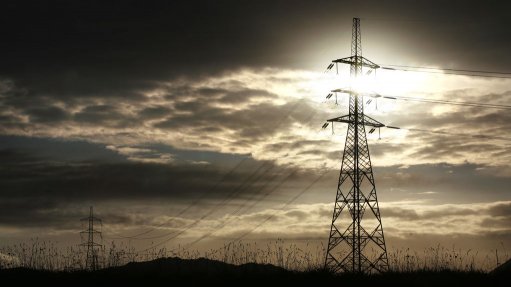
MONITORED CONSUMPTION NCPC-SA is trying to find ways to optimise South Africa’s energy consumption
Lack of energy supply security, economic costs associated with energy, and environmental costs, such as depleting resources, contributing to climate change are just some of the factors that can be mitigated if South Africa embraces energy efficiency and reliable renewable-energy alternatives, says the National Cleaner Production Centre of South Africa (NCPC-SA).
As such, NCPC-SA energy management systems expert Wendy da Cruz points out that the centre provides a range of subsidised energy performance improvement programme-related services at little or no cost. These include energy management systems based on ISO 50001, which specifies energy management systems requirements.
She explains that energy management systems requirements are “aimed at providing benefits for large and small organisations . . . in the public and private sectors, in manufacturing and services”. These systems provide organisations with a recognised framework for integrating energy performance into their management practices.
NCPC-SA aims to assist organisations in becoming more efficient with their energy- consuming assets. This includes creating transparency and communication in managing energy resources, promoting energy management best practices, reinforcing good energy management behaviours and assisting facilities in evaluating and prioritising the implementation of new energy efficient technologies. In addition, NCPC-SA assists in promoting energy efficiency throughout the supply chain and facilitating energy management improvements for greenhouse-gas emission reduction projects.
Organisations and regulatory authorities are entrusted with setting targets for improving energy performance, and can implement ISO 50001 to establish a baseline performance on which to improve. Da Cruz emphasises the importance of measuring and reporting verified energy consumption for South Africa to better understand and manage its energy profile.
Further, there are tax incentives for improving energy efficiency and management systems. Da Cruz says the energy efficiency tax incentive – Section 12L of Taxation Laws Amendment Act, No 25, of 2015 – increases the tax deduction from 45c/kWh to 95c/kWh, or kW hour equivalent, of energy saved.
However, for an organisation to benefit from this, energy performance indicators must include provision for accommodating changes in relevant variables. This legislation, sometimes deemed confusing, prompted the NCPC-SA’s two-day training course on energy performance measurement and indicators to promote the understanding of this.
Energy Efficiency in Business
Da Cruz says, despite South African businesses being enthusiastic about saving money, they are equally cautious about implementing energy management systems into their businesses because of the belief that energy efficiency is costly.
The NCPC-SA and the United Nations Industrial Development Organisation industrial energy efficiency programme aims to dispel these beliefs and promote the ways in which energy management systems can benefit organisations through training, assessments and implementation. “Once organisations have insight into the [energy efficient] approach, they are enthusiastic about implementing energy management systems,” Da Cruz says.
The programme, implemented across South Africa at advanced and expert levels, creates the skills required to maximise energy efficiency, she says. The NCPC-SA conducts in-plant assessments at participating companies to identify areas where energy, water and material assessments to gauge current consumption, can be improved, as well as identify opportunities to lower production costs.
Monitoring energy consumption enables associations, such as the NCPC-SA, to find ways of improving South Africa’s energy consumption habits, an essential first step in becoming a more energy-conscious and efficient country, Da Cruz concludes.